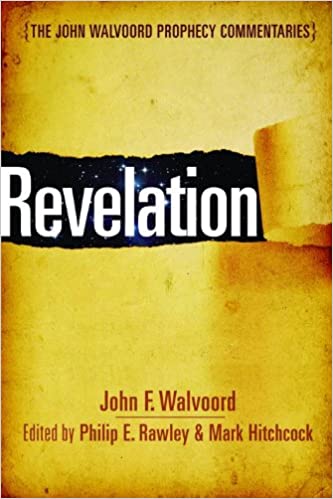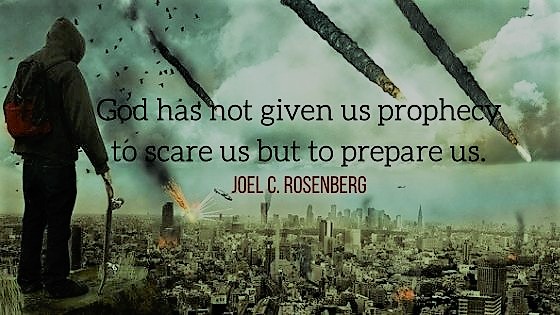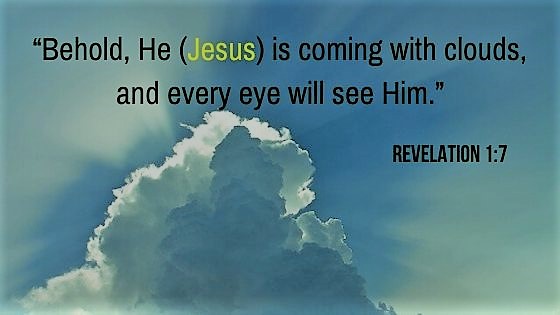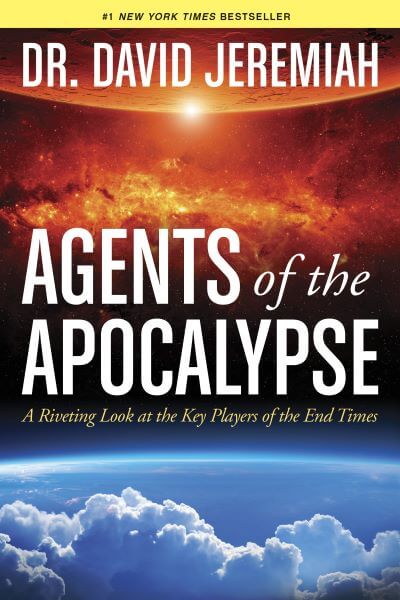With the increasing anti-Christian sentiment and the decline of economic and social stability, many Christians today are anxious about the future. In times like these, people tend to look even more closely at the book of Revelation because it encourages Christians to keep hope alive.
Background of the Book of Revelation
The apostle John wrote his great book while he was banished to Patmos – a small, rocky island in the Aegean Sea. While he was shut out from the world, he was shut into God and received the most extensive revelation of future events shown to any writer of the New Testament.
God very well may have allowed John’s banishment so he could be alone with Him and receive this monumental vision of the future. Sometimes the work God has for us requires removal from our normal environment. Abraham’s call, Joseph’s slavery, Moses’ flight from Egypt, and Daniel’s captivity are some instances.

Many writers isolate themselves by getting away to a mountain retreat or stay in a hotel room so they can concentrate fully on their task. I tend to focus more on my thinking, planning and, writing when left alone in a quiet or remote place.
It becomes quickly apparent as we open the book of Revelation that we are about to encounter a message with a high purpose. Though it bears certain similarities to prophetic passages in Daniel, Ezekiel, and Matthew, Revelation is unique.
What Kind of Book is Revelation?
The book of Revelation tells us what kind of book it is in the first few paragraphs.
A Prophetic Book
“The Revelation of Jesus Christ, which God gave Him to show His servants – things which must shortly take place. And He sent and signified it by His servant John” (Revelation 1:1).
Revelation 1:1 displays the prophetic nature of what John wrote through the use of one keyword and one key phrase. The keyword is revelation, which is the translation of the Greek word apokalypsis or “apocalypse.” In the Greek New Testament, this is the first word of the entire book.
What comes to mind when you hear the word apocalypse? Horrible disasters associated with the end of the world, right? But in the Greek, the word simply means “an uncovering; an unveiling; a manifestation of.”
While most people believe that the primary purpose of the book of Revelation is to paint a picture of the end times, although it does do that, it was written primarily to unveil, or uncover, the majesty and power of Jesus Christ. This book is neither a puzzle nor an enigma but a disclosure of who Jesus is.
The key prophetic phrase used in Revelation 1:1 is translated “must shortly take place,” which describes something that suddenly comes to pass. It indicates rapid progression after something commences. The idea is not that the event may occur soon but that when it does, it will occur suddenly.
It’s more like an earthquake; we don’t know when the next will come, but we know that it will. And it will come suddenly and without warning.
Recommended Resource: Revelation (The John Walvoord Prophecy Commentaries)
 The book of Revelation has long fascinated and even confused readers and students of the Bible.
The book of Revelation has long fascinated and even confused readers and students of the Bible.
Yet the Bible is written to be understood, and Revelation is no exception. Who better to help you understand the seals, trumpets, vials, woes, and plagues than John F. Walvoord, one of evangelicalism’s most prominent leaders, and Mark Hitchcock, today’s leading Bible prophecy expert?
In this first in a renewed series of commentaries from Dr. Walvoord, he points out that much of the book’s symbolism can be interpreted literally. At key points, different views and approaches to interpretation are explored. Walvoord devotes special attention to textual and doctrinal issues while avoiding technical language.
Refined, updated with the English Standard Version (ESV), and streamlined, this classic text is set to help you interpret the last book of the Bible and gain a better grasp of current trends and the climax of history!
A Personal Book
“John … bore witness to the end of the word of God, and to the testimony of Jesus Christ, to all things that he saw” (Revelation 1:2).
The book of Revelation is cosmic and far-reaching in its scope, yet it is also very personal. This is a message that John received personally from the Lord (Revelation 1:1-2) and he writes to those with whom he is intimately acquainted, referring to himself as a “brother and companion” in tribulation (Revelation 1:9).
The Lord said to John, “What you see, write in a book and send it to the seven churches which are in Asia: to Ephesus, to Smyrna, to Pergamos, to Thyatira, to Sardis, to Philadelphia, and to Laodicea” (Revelation 1:11). The seven letters we find in chapters 2 and 3 were personal letters written to actual congregations in Asia Minor (modern-day Turkey) at the end of the first century AD.
Theologian John Stott said this, “The seven cities mentioned form an irregular circle, and are listed in the order in which a messenger might visit them if commissioned to deliver the letters. Sailing from the island of Patmos … he would arrive at Ephesus. He would then travel north to Smyrna and Pergamum, south-east to Thyatira, Sardis, and Philadelphia, and finish his journey at Laodicea.”
Notice how each of the letters begins with the phrase, “I know your works,” and each contains a promise to the one “who overcomes.” But each message between these bookend phrases was personally tailored to the needs of the church to which it was addressed. As such, the letters must be read in their own context.
However, let us not take these letters for granted as there are applications for us today. John may have written these letters with first-century churches in mind, but they accurately identify the kinds of Christians who show up in church in every age – including today.
Anyone who reads the letters will likely think of individuals or churches that fit some of the descriptions. I believe the Lord’s recommendations to these seven churches could solve all the problems modern churches face. The fact that all seven letters were contained in a single parchment meant that each of the churches was required to read the letters written to the others.
A Pictorial Book
“He sent and signified it by His angel to His servant John, who bore witness to the word of God, and to the testimony of Jesus Christ, to all things that he saw” (Revelation 1:1a-2).
John indicated, on thirty-nine occasions, that he was recording things he saw. His word paint vivid pictures to reveal the future through memorable images and symbols.
Symbols occur throughout Scripture as vehicles for divine revelation, but this book contains more than any other. Sometimes the symbols represent people, such as in the first chapter where Jesus is seen as a judge with a two-edged sword coming out of His mouth.
The Antichrist is presented as a beast coming out of the sea, and the false prophet as a beast originating from the earth, in chapter 13.
You may ask, “Why is there so much symbolism in the book of Revelation?”
First of all, symbolism is not weakened by time. Well-chosen symbols span the centuries and allow us to apply them not only to ancient or future times but also to our own. They create a compelling drama that encourages persecuted and suffering saints throughout the ages.
Second, symbols impart values and arouse emotions. To call a tyrant a beast evokes a primal fear that the word dictator misses. It is also more colorful to refer to the corrupted world system as Babylon the Great than to dull it with a mundane list of descriptions.
This is what Eugene Peterson said about how the imagery in Revelation affects him: “The truth of the gospel is already complete, revealed in Jesus Christ. There is nothing new to say on the subject. But there is a new way to say it. I read the book of Revelation not to get more information but to revive my imagination.”
Last but not least, these symbols functioned as a kind of spiritual code that was generally understood by believers but not by outsiders. John’s book was circulated to the churches during the reign of Domitian (AD 81-96). If it had been written in more direct, prosaic language to fall into the hands of the Romans, those associated with the book would have been executed.

A Profitable Book
Revelation is the only book in the Bible that motivates its readers by promising a blessing for those who will read and obey it. The promise is made at the beginning and the end (Revelation 1:3 and Revelation 22:7).
Related Article: The 7 Blessings in the Book of Revelation
You may be surprised to know that the word blessed as used in the above-mentioned verses means joyous, blissful or happy. So it may seem strange to associate joys with the sometimes chilling drama of the book of Revelation.
But as Dr. Martin Lloyd-Jones explained, “Revelation was written in order that God’s people who were passing through terrible persecutions and terrible adversity might still be able to go on rejoicing. This book was written to help men and women who are in trouble by showing them the ultimate victory of the Lord over Satan and all the forces of evil.”
1. Profitable for Personal Application
It often appears that the enemy is winning but the book of Revelation puts everything into perspective. It tells us of God’s plan for the future and assures us that we are on the winning side. Satan may win some present battles, but the outcome of the war has already been determined.
Knowing that this truth gives us the courage to press on and persevere through the downturns.
2. Profitable for Public Assembly
Public reading and exhortation were an integral part of gatherings in the early church. Paul told young Timothy, for example, to “give attention to reading, to exhortation, to doctrine” (1 Timothy 4:13).
The first-century church met in one place on the first day of the week and memoirs of the apostles or the writings of the prophets were read as long as time permits. When the reader has finished, the president would urge and invite the people to imitate the noble things read.
3. Profitable for Prophetic Anticipation
Revelation 1:3 ends with the phrase “the time is near,” and Revelation 22:10 declares that “the time is at hand.”
The expression, “the time is near” does not necessarily mean the event will occur immediately. It does indicate nearness from the standpoint of prophetic revelation, which operates according to its own timetable. These events were near when John recorded them as they were the next major event on the calendar. And they are even closer today.
Prophecy is God’s way of giving us a fair warning so we can prepare our hearts and minds to be ready for what is ahead.
A Practical Book
More than a century ago, a book entitled, Jesus is Coming: God’s Hope for a Restless World written by William E. Blackstone was published, and interestingly, it had a significant impact on the Christian world that it spurred much of today’s interest in the study of prophecy.
In his book, Blackstone devotes an entire chapter to the practical benefits of studying Bible prophecy, which he calls the true incentive to a holy life. He writes, “No other doctrine in the Word of God presents a deeper motive for crucifying the flesh, for separation to God, to work for souls, and as our hope and joy and crown of rejoicing than this does.”
Three practical benefits that come to us from studying prophecy, especially the book of Revelation:
1. Studying prophecy motivates us to live productive lives.
Contrary to what some people think that a keen awareness of the second coming of Christ will turn us into lazy souls who stand around gazing upward in some kind of useless trance, knowing that Jesus is coming any minute will motivate us, even more, to work for Him to do the Father’s business in these last days.
2. Studying prophecy motivates us to live positive lives.
The book of Revelation promotes a positive mindset that as we study it; we begin to realize that everything that’s happening in our world today is heading somewhere. In Revelation, we see God’s sovereign hand upon affairs of the world, as in no other book, and we see Him in control even though so much here on earth seems out of control.
As the conditions of our world worsen, instead of hanging our heads on depression or shake our heads in confusion, we are to lift up our heads in expectation, for our redemption draws near (Luke 21:28).
3. Studying prophecy motivates us to live pure lives.
The third benefit of studying Revelation is that it fosters purity in our lives. The Bible says, “… when He is revealed, we shall be like Him, for we shall see Him as He is. And everyone who has this hope in Him purifies himself, just as He is pure” (1 John 3:2-3).
A Purposeful Book
Revelation 1:7-8 presents the twofold purpose of the entire book, which is to affirm Christ’s return and His ultimate reign over the earth.
“Behold, He is coming with clouds, and every eye will see Him, even they who pierced Him. And all the tribes of the earth will mourn because of Him. Even so, Amen” (Revelation 1:7).
Daniel predicted that the Messiah would come through the clouds (Daniel 7:13). In His Olivet Discourse, Jesus spoke of His coming in similar terms (Matthew 24:30). John expanded on Jesus’ words to describe what every person will experience at His second coming (Revelation 1:7).
“I am the Alpha and the Omega, the Beginning and the End,” says the Lord, “who is and who was and who is to come, the Almighty” (Revelation 1:8).
Alpha and omega are the first and last letters of the Greek alphabet that point not only to the eternity of Christ but also to His all-inclusive power.
As the Alpha and Omega, Christ precedes the beginning of Creation and survives the end of humanity’s day. He is the eternal, omnipotent God. And when the time was right, Jesus began His campaign to regain His rightful sovereignty over the earth.
The book of Revelation is the account of that campaign. It tells of His appointment by the Father to the throne, His battle against the forces of evil, His final victory, and His relationship with the redeemed.
As a result of Christ’s triumph, His people are presented as overcomers. The simple meaning of the word overcome is “to conquer” or “to win the victory.” The promise of victory is certain, but its final reality awaits the return of Jesus Christ the King.

Closing Words
It is in the heart of every believer to join with the saints of old in longing for that day as did John when he completed his scroll: “Even so, come Lord Jesus!” (Revelation 22:20). Yet while we wait, let us remember that we still need the revelation that John received from Jesus.
In a world where we see Christian’s martyred for their faith each year, the church remaining terribly flawed, we need the Revelation which Jesus gave to John – a Revelation which changes everything; a Revelation that God is still on the throne working out His strategies from the control room of heaven.
Reference: Agents of the Apocalypse (A Riveting Look at the Key Players of the End Times) by Dr. David Jeremiah
 Who Will Usher in Earth’s Final Days?
Who Will Usher in Earth’s Final Days?
Are we living in the end times? Is it possible that the players depicted in the book of Revelation could be out in force today? And if they are, would you know how to recognize them?
In Agents of the Apocalypse, noted prophecy expert Dr. David Jeremiah does what no prophecy expert has done before. He explores the book of Revelation through the lens of its major players―the exiled, the martyrs, the elders, the victor, the king, the judge, the 144,000, the witnesses, the false prophet, and the beast.
One by one, Dr. Jeremiah delves into their individual personalities and motives, and the role that each plays in biblical prophecy. Then he provides readers with the critical clues and information needed to recognize their presence and power in the world today.
The stage is set, and the curtain is about to rise on Earth’s final act. Will you be ready?


I have actually peeked at sections of the book of Revelations during the pandemic.
Especially with the false prophecy of vaccines being the mark of the beast, and other works of deceit, I feel that the book reveals the nature and the plans of both Jesus AND Satan at the same time.
For example, if you look in the last few chapters of the book (especially chapters 12, 13, 20, and 21), the apostle John reveals the final plans that Satan and the Antichrist will carry out in the final days of the era of sin. Then, we learn of the state of Christ’s army and the judgment of all creatures, including the fate of Satan and his legions.
Praise God for revealing Himself to us through symbolic and artistic representations, and through the guidance of the Holy Spirit.
Check out this essay I wrote about Revelations 2:9 and 3:9. I am debunking the worldwide antisemitic trope that all Jewish people are “the synagogue of Satan.”
https://docs.google.com/document/d/1zB13QVt2edlVK99j252RWJPNZxixeaFfRQyXp3oNTsM/edit?usp=drivesdk
My art collection for the book of Revelations.
a. https://docs.google.com/document/d/1T8vmAOodZVGebXE5R-E8kvdYmbBVZPNImqAdKLlx0uI/edit?usp=drivesdk
b. https://docs.google.com/document/d/1B6K0CMmuTrQr1pAANHgPG3BiYxQidDlpz_XlBoSSx9Q/edit?usp=drivesdk
c. https://docs.google.com/document/d/13i33zkhtAAXVNctNx3zIS2oJywMi-lq4EUs5YcyPsMc/edit?usp=drivesdk
🙂
Hello Maia,
Thank you for regularly engaging with us and the readers. We really appreciate your contributions and insightful comments.
The book of Revelation is one that some Christians avoid reading because of the seemingly horrific things and events it mentions. Preachers also avoid preaching from it because they do not want to “scare” their congregations.
But I believe it is important that we study it because first of all, it’s prophetic, and almost 1/3 of the Bible is prophetic. If we are dead serious about knowing God’s plan, we cannot disregard the book of Revelation because it lays out what will happen in the future.
Also, knowing what’s in store for the unbelievers should make us all the more eager to share God’s love and His gift of salvation with others.
Furthermore, there are Several blessings promised to those who read and study it, which is what this post below is all about.
https://biblical-christianity.com/the-7-blessings-in-the-book-of-revelation
Thanks again, Maia, shalom!
You’re welcome! May the peace of God be with you and your family!
Praise to our Lord Jesus! 🙂